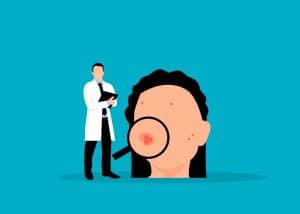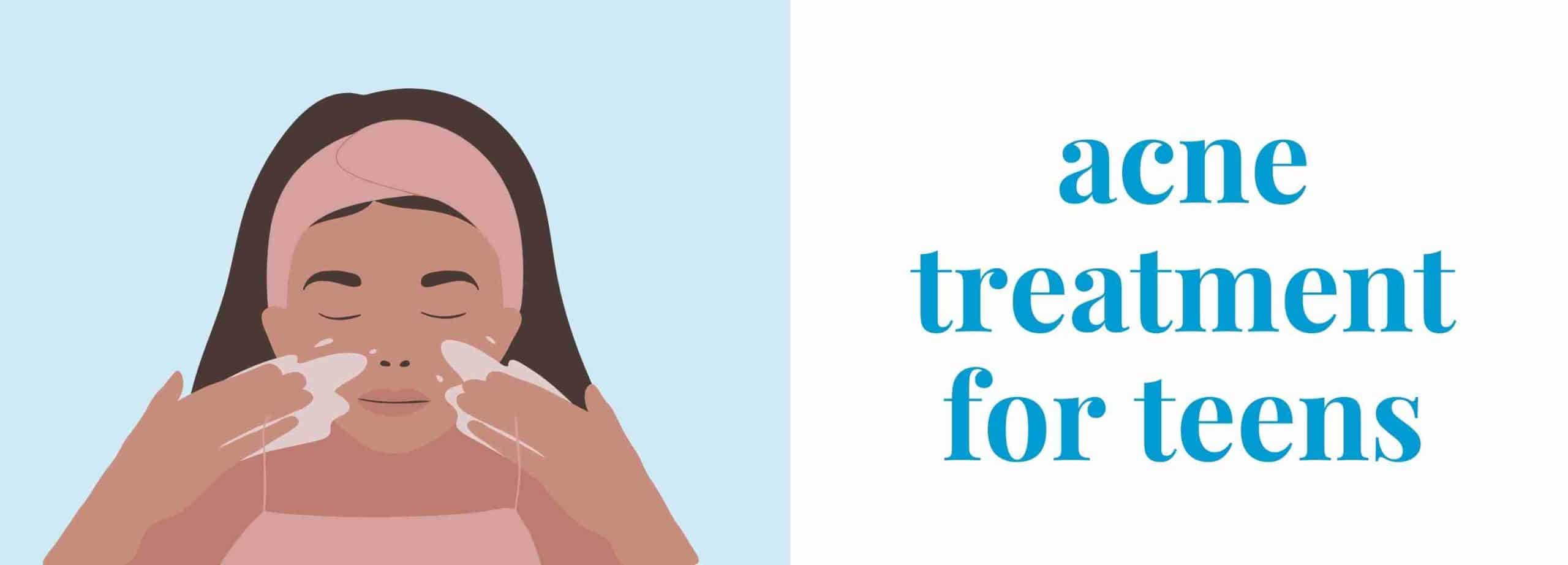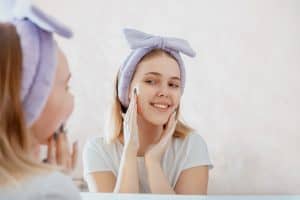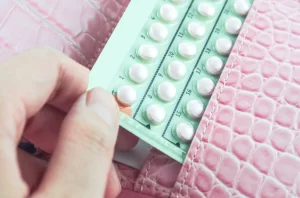Being a teenager is hard enough. Throwing the self-consciousness that comes with acne into the mix can make it even worse. Acne breakouts can be frustrating and embarrassing, but you’re not alone. As many as 93% of teens are affected by acne.
Teen acne is caused by your skin producing excess oil and dead skin cells, clogging your pores and irritating your skin.
While it may feel like your acne will never go away, it can be controlled with the right acne treatment. If you have milder acne, there’s a variety of over the counter creams, gels, and cleansers available. If you’re experiencing more severe or persistent acne, you may need a prescription (which can be easily obtained online through telemedicine).
Continue reading to learn more about the causes of teenage acne and the best treatments for teens so you can finally say, “Bye-bye, Acne!”

What Causes Teenage Acne?
Acne in teens is mainly acne vulgaris (“common acne”). This kind of acne appears on the face and upper body (including the neck, acne on back, female chest acne, and shoulders).
Teen acne is often caused by excess oil production of the sebaceous glands. The oil (sebum) usually helps keep your skin and hair moisturized. However, when you’re a teenager, and your hormones are all over the place, your skin can produce excess oil. The buildup of oil and dead skin cells can clog your pores, and bacteria can grow. Bacteria in your pores can cause irritation, causing acne.
Some teens may also experience more severe acne, often called cystic acne, which leaves you with deep scars and painful pimples.
Acne can appear as whiteheads, blackheads, or pimples (papules or pustules).
Whiteheads and Blackheads
Whiteheads and blackheads are closest to the skin’s surface. Blackheads are open bumps that fill with accumulated oil and dead skin cells and commonly appear on your nose and chin. On the other hand, whiteheads are bumps that remain closed by oil and dead skin.
Papules and Pustules
These tend to be bigger, more painful pimples caused by irritation to the pore. Papules and pustules cause the walls of the pore to break down under the skin’s surface. Papules are raised bumps with no head and feel rough to the touch. Pustules are filled with pus (a white or yellow liquid) and look like large whiteheads sometimes surrounded by a red ring.
Best Acne Treatment for Teens
The best acne treatments for teens may require you to see a doctor and get a prescription. Many prescriptions can effectively treat acne. Be sure to reach out to your doctor if one of the following treatments sounds like a good fit for you. You may also consider using Pandia Health’s Telemedicine service where our expert doctors help you find the best acne treatment for you from the comfort of your home.
Differin Gel/ Adapalene Gel
Differin Gel 0.1% and Adapalene Gel prevents hair follicles from producing excess oil that can clog pores, effectively stopping and preventing breakouts. The great news? It’s available without a prescription!
Benzoyl Peroxide
Many acne cleansers, creams, and gels contain benzoyl peroxide as an active ingredient. Benzoyl peroxide works by killing bacteria that cause acne. It can also help people with oily skin by helping to get rid of excess oil and dead skin cells, which can clog pores. Products containing benzoyl peroxide are also available without a prescription. Our founder, Dr. Sophia Yen does not recommend stronger than 10% Benzoyl peroxide gel/cream because “it doesn’t work better than 5% and only causes double the side effects. However, for washes/soaps, you can go up to 10%.”
Salicylic Acid
Much like benzoyl peroxide, salicylic acid is commonly found in many acne products. Salicylic acid works by helping the skin shed dead skin cells from the top layer of your skin and reducing the redness and inflammation caused by acne pimples. Adding salicylic acid to your skincare routine can also help take care of the excess oil your skin produces that causes acne.
Tretinoin Cream
Tretinoin is a topical cream used to treat acne and it’s stronger than anything you can get over the counter, so it can be harsher on the skin.
Creams containing tretinoin work by decreasing your skin’s oil production, making the skin less oily, the pores smaller, and the cells less sticky. Tretinoin helps reduce the likelihood that your pores will get clogged. It decreases the severity and number of acne lesions and speeds up the time to heal pimples.
Get your Acne Prescription Delivered to Your Doorstep
Getting prescription-grade topical and/or oral acne treatment delivered to your door has never been easier. Find your online acne treatment right here, with Pandia Health.
Use a Gentle Cleanser
One of the easiest ways to treat and prevent acne is to regularly wash your face with a gentle cleanser twice a day. Consider revisiting your other hair and makeup products. Look for products labeled as “non-comedogenic.” These products won’t clog pores while allowing your skin to breathe and remain hydrated.
Gentle Exfoliating
While washing your face twice a day is a simple solution, it might not be enough to treat troublesome acne breakouts or more severe acne.
If you want products with natural ingredients, look for products with azelaic acid, green tea extract, tea tree oil, and zinc.
Wear Sunscreen
Sunscreen is essential for skin health to protect it from sun exposure. In fact, it is especially important when using acne treating/preventing products and treatments. These products can increase your sensitivity to the sun.
Sunscreens can clog pores, so it’s essential to look for sunscreens specially formulated for acne-prone skin and that are labeled “non-comedogenic” to not make your acne worse.
Birth Control
On top of all their other benefits, birth control pills, (you know, preventing pregnancy and helping regulate your cycle), have the added side effect of being pretty darn good at helping with hormonal acne. While the FDA has only approved 3 specific oral contraceptives to treat hormonal acne, research has shown that all combined birth control pills help treat acne.
Not on birth control? Think you might be a good fit? Reach out to your doctor or the expert doctors at Pandia Health about your options.
Takeaways
Having acne as a teen, well, sucks. Treating acne can be as simple and easy as remembering to wash your face twice a day. But acne can also be more stubborn than that. You might need to talk to a doctor about an acne treatment for teens that works for you. Just know that you’re not the only one going through this.
There are lots of acne treatments to get your acne under control so you can start looking and feeling your best.
Reach out to the expert doctors at Pandia Health when you’re ready to say “Bye-bye acne, hello clear skin!”
Disclaimer: This article is for general informational purposes only and is NOT a substitute for professional medical advice. Always seek the advice of your healthcare provider before starting or changing acne treatment.



